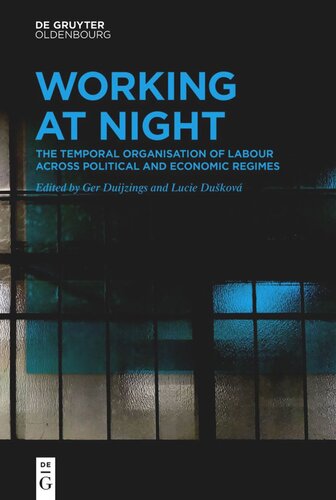

Most ebook files are in PDF format, so you can easily read them using various software such as Foxit Reader or directly on the Google Chrome browser.
Some ebook files are released by publishers in other formats such as .awz, .mobi, .epub, .fb2, etc. You may need to install specific software to read these formats on mobile/PC, such as Calibre.
Please read the tutorial at this link: https://ebookbell.com/faq
We offer FREE conversion to the popular formats you request; however, this may take some time. Therefore, right after payment, please email us, and we will try to provide the service as quickly as possible.
For some exceptional file formats or broken links (if any), please refrain from opening any disputes. Instead, email us first, and we will try to assist within a maximum of 6 hours.
EbookBell Team

0.0
0 reviewsOpen Access
The night represents almost universally a special, liminal or "out of the ordinary" temporal zone with its own meanings, possibilities and dangers, and political, cultural, religious and social implications. Only in the modern era was the night systematically "colonised" and nocturnal activity "normalised," in terms of (industrial) labour and production processes. Although the globalised 24/7 economy is usually seen as the outcome of capitalist modernisation, development and expansion starting in the late nineteenth century, other consecutive and more recent political and economic systems adopted perpetual production systems as well, extending work into the night and forcing workers to work the "night shift," normalising it as part of an alternative non-capitalist modernity. This volume draws attention to the extended work hours and night shift work, which have remained underexplored in the history of labour and the social science literature. By describing and comparing various political and economic "regimes," it argues that, from the viewpoint of global labour history, night labour and the spread of 24/7 production and services should not be seen, only and exclusively, as an epiphenomenon of capitalist production, but rather as one of the outcomes of industrial modernity.